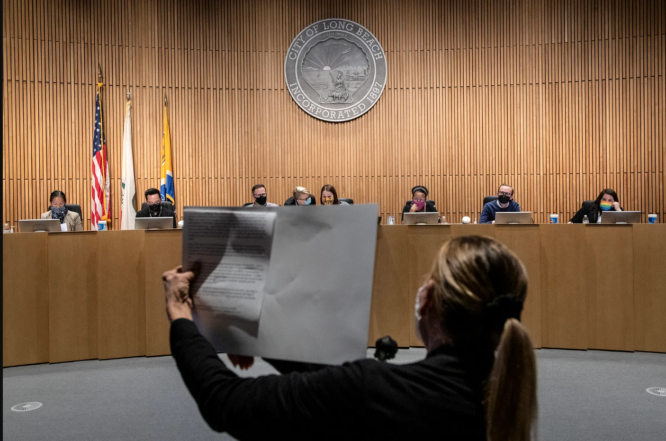For decades, California’s post-census redistricting was controlled by gerrymandering.
The Legislature had redistricting powers for itself and the state’s congressional delegation, and every 10 years its power players would redraw California to benefit themselves, their parties, and their supporters.
Their districts sometimes defied geographical or demographic logic. Michael Berman, who died recently, was known as a genius who could make or destroy political careers by drawing lines for his brother, longtime politician and Congressman Howard Berman, and others.
In the 1980s, Congressman Phil Burton called his lines “my contribution to modern art” after a particularly imaginative redistricting.

The state Supreme Court signed redistricting laws when Republican governors refused.
However, California voters gave redistricting power to an independent committee when gerrymandering grew so unjust.
After the 2000 census, a bipartisan gerrymander froze the Legislature and congressional delegation and overlooked substantial demographic shifts, sparking the revisions.
A 2008 election vote formed the legislative districts commission, and a 2010 measure expanded its power to congressional districts.
The 14-member committee, with five members from each major party and four no-party-preference voters, worked after the 2010 and 2020 censuses. While some were unhappy with its results, the process was transparent and fair.
Local gerrymandering is just as bad, especially in bigger counties, cities, and school districts where politics often trump civic obligation.
Local redistricting reform began a decade ago. The Legislature requires five relatively large counties to utilize independent commissioners to redesign districts for their five-member boards of supervisors.
The Assembly enacted legislation mandating independent commissioners for cities and counties with more than 300,000 population and school and community college districts with more than 500,000 last week, furthering redistricting reform. Another law strengthened district-shaping standards.
“Redistricting is crucial for determining community representation in government for the next decade,” said Laurel Brodzinsky of California Common Cause, one of the sponsoring organizations. “These bills ensure that process is transparent, participatory, and community-driven, not politician-driven.”
The measure would improve if it passes the Legislature and is approved by Gov. Gavin Newsom.
The five counties with redistricting commissions—Los Angeles, San Diego, Riverside, Fresno, and Kern—would be exempt from the new law. The legislation that formed the five commissions had one key distinction.
Commissioners in certain counties must report party voter registration. Los Angeles, San Diego, Riverside, and Fresno have Democratic commissioners, while Kern’s is more evenly split.
The new law shouldn’t need it. The state redistricting panel is structured not to favor either party, and local commissioners, including the five counties exempted from the new statute, should follow suit.




